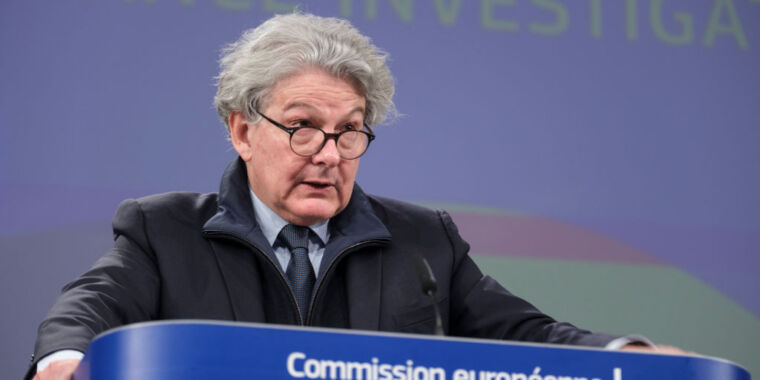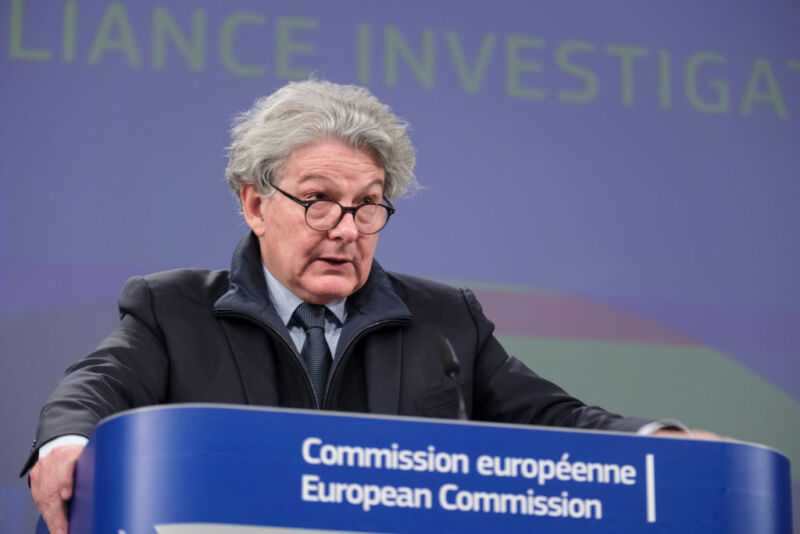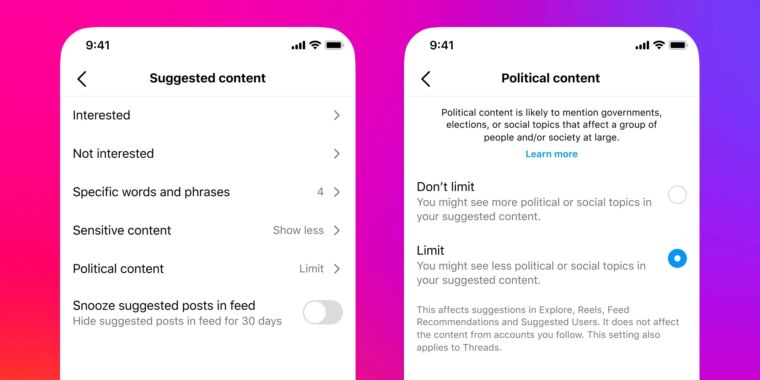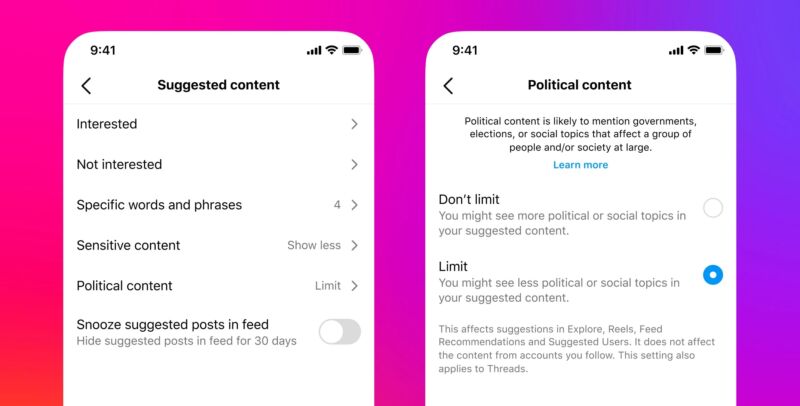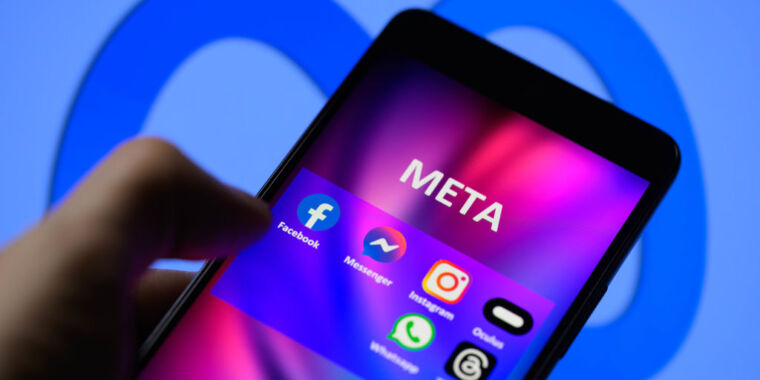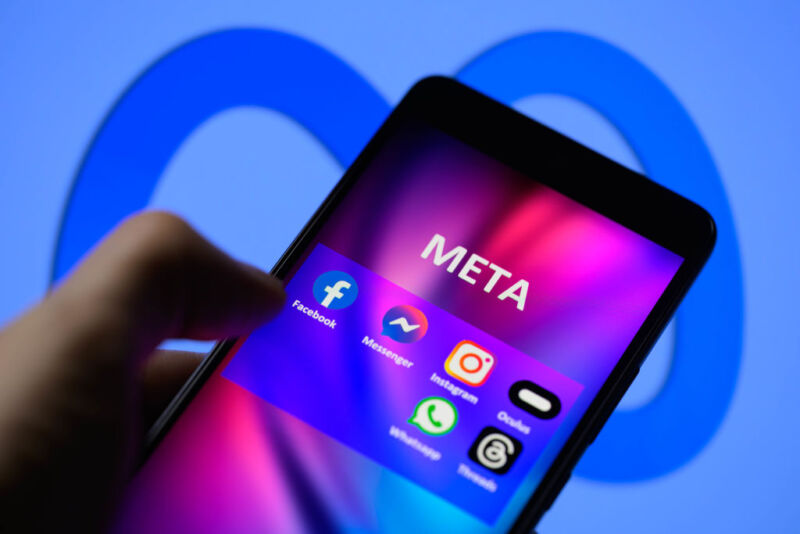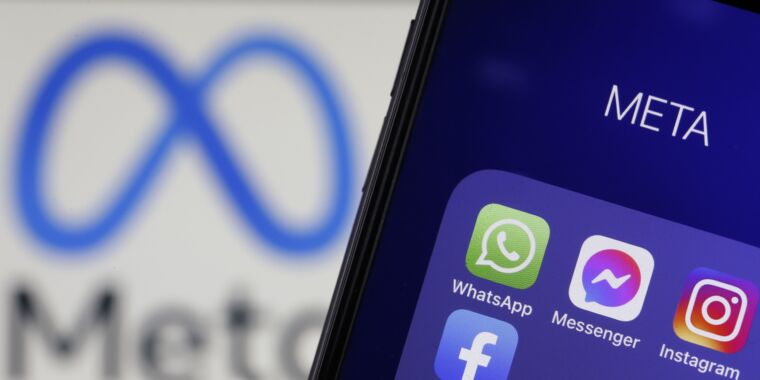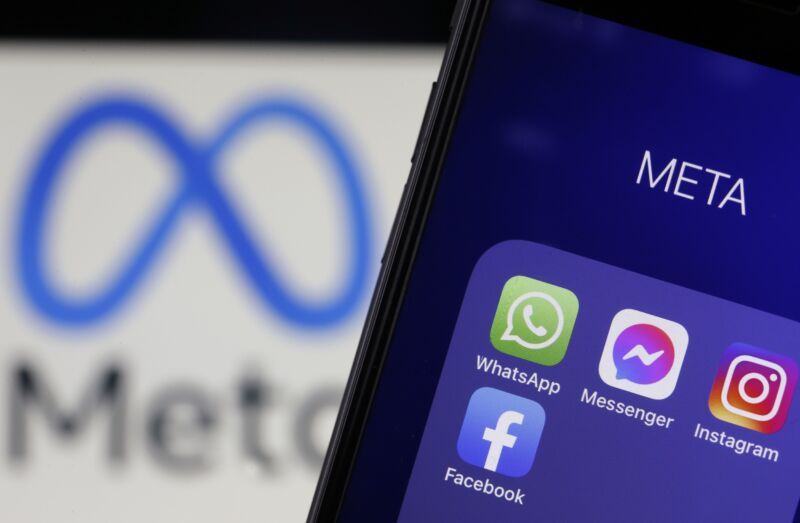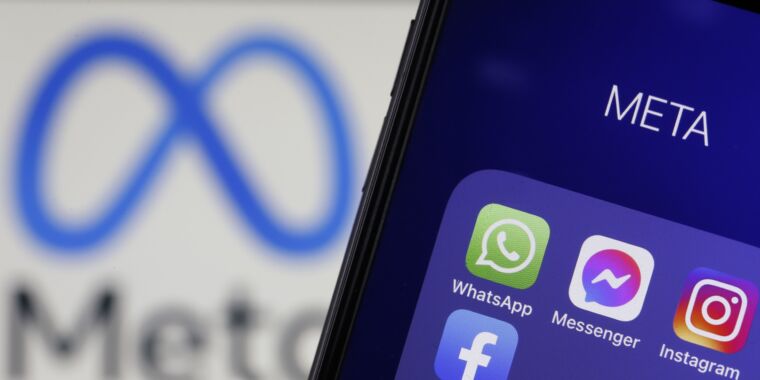Meta relaxes “incoherent” policy requiring removal of AI videos

On Friday, Meta announced policy updates to stop censoring harmless AI-generated content and instead begin “labeling a wider range of video, audio, and image content as ‘Made with AI.'”
Meta’s policy updates came after deciding not to remove a controversial post edited to show President Joe Biden seemingly inappropriately touching his granddaughter’s chest, with a caption calling Biden a “pedophile.” The Oversight Board had agreed with Meta’s decision to leave the post online while noting that Meta’s current manipulated media policy was too “narrow,” “incoherent,” and “confusing to users.”
Previously, Meta would only remove “videos that are created or altered by AI to make a person appear to say something they didn’t say.” The Oversight Board warned that this policy failed to address other manipulated media, including “cheap fakes,” manipulated audio, or content showing people doing things they’d never done.
“We agree with the Oversight Board’s argument that our existing approach is too narrow since it only covers videos that are created or altered by AI to make a person appear to say something they didn’t say,” Monika Bickert, Meta’s vice president of content policy, wrote in a blog. “As the Board noted, it’s equally important to address manipulation that shows a person doing something they didn’t do.”
Starting in May 2024, Meta will add “Made with AI” labels to any content detected as AI-generated, as well as to any content that users self-disclose as AI-generated.
Meta’s Oversight Board had also warned that Meta removing AI-generated videos that did not directly violate platforms’ community standards was threatening to “unnecessarily risk restricting freedom of expression.” Moving forward, Meta will stop censoring content that doesn’t violate community standards, agreeing that a “less restrictive” approach to manipulated media by adding labels is better.
“If we determine that digitally created or altered images, video, or audio create a particularly high risk of materially deceiving the public on a matter of importance, we may add a more prominent label so people have more information and context,” Bickert wrote. “This overall approach gives people more information about the content so they can better assess it and so they will have context if they see the same content elsewhere.”
Meta confirmed that, in July, it will stop censoring AI-generated content that doesn’t violate rules restricting things like voter interference, bullying and harassment, violence, and incitement.
“This timeline gives people time to understand the self-disclosure process before we stop removing the smaller subset of manipulated media,” Bickert explained in the blog.
Finally, Meta adopted the Oversight Board’s recommendation to “clearly define in a single unified Manipulated Media policy the harms it aims to prevent—beyond users being misled—such as preventing interference with the right to vote and to participate in the conduct of public affairs.”
The Oversight Board issued a statement provided to Ars, saying that members “are pleased that Meta will begin labeling a wider range of video, audio, and image content as ‘made with AI’ when they detect AI image indicators or when people indicate they have uploaded AI content.”
“This will provide people with greater context and transparency for more types of manipulated media, while also removing posts which violate Meta’s rules in other ways,” the Oversight Board said.
Meta relaxes “incoherent” policy requiring removal of AI videos Read More »



